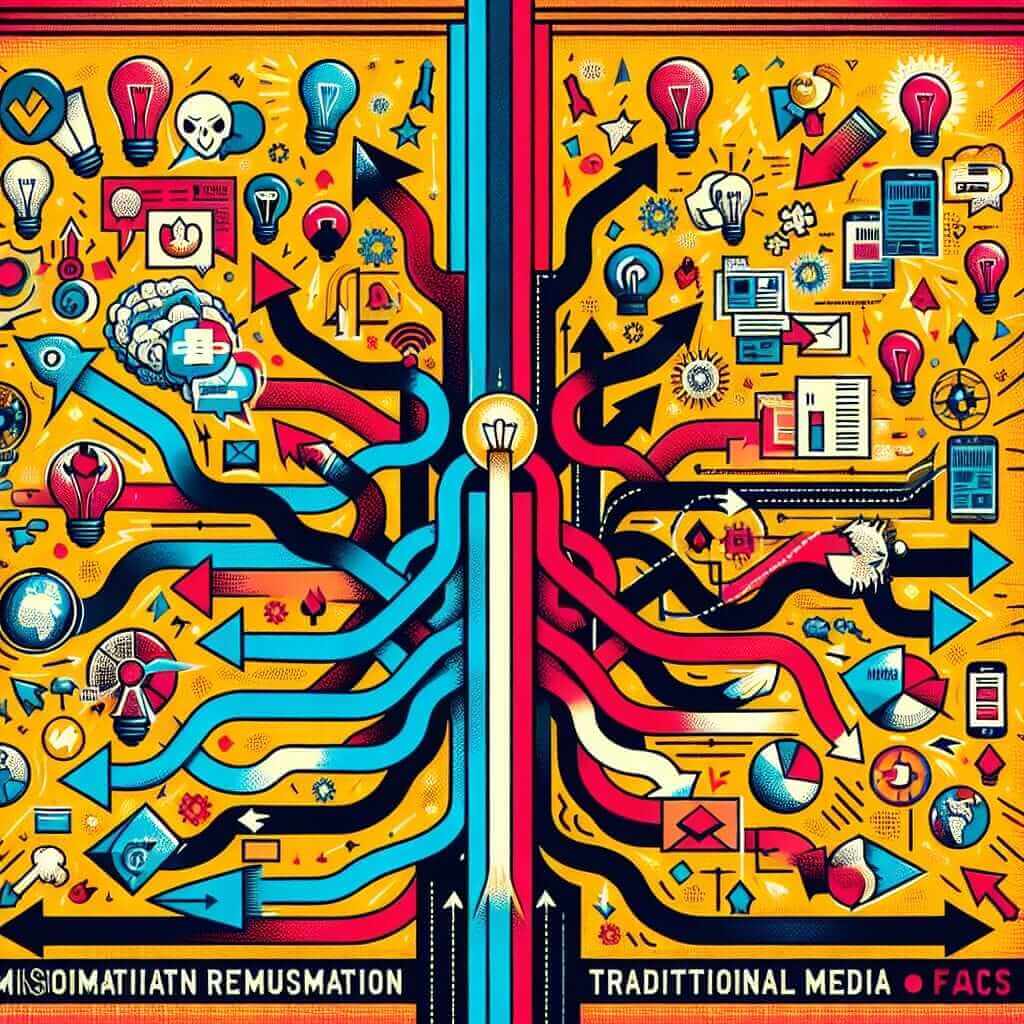In the IELTS Reading exam, test-takers are examined on their ability to understand and analyze various texts. One frequent topic in recent years, especially with the rise of digital communication, has been the spread of misinformation via social media. This topic has been increasingly common due to its relevance and impact on today’s society. Given the growing concern over misinformation, it is highly probable that this subject or similar ones will appear in future IELTS exams.
The Reading Passage
Social Media and Misinformation
The rapid rise of social media platforms such as Facebook, Twitter, and Instagram has revolutionized the way we communicate and access information. While there are numerous benefits to these platforms, including enhanced connectivity and real-time news updates, they also have a significant downside: the spread of misinformation.
Misinformation on social media can spread exponentially faster than traditional media due to the nature of these platforms. Before the advent of social media, incorrect information would need to pass through several checkpoints, such as editors and fact-checkers, before reaching a wide audience. However, on social media, anyone can publish content instantly, regardless of its accuracy. Algorithms designed to maximize engagement can inadvertently exacerbate the problem, as sensational and controversial posts often garner more attention.

Factors Contributing to the Spread
Several factors contribute to the rampant spread of misinformation on social media. Firstly, confirmation bias plays a substantial role. People tend to engage with content that aligns with their pre-existing beliefs and disregard information that contradicts them. This selective exposure reinforces false beliefs and makes it easier for misinformation to thrive.
Furthermore, the anonymity provided by social media platforms allows individuals to disseminate information without accountability. Fake accounts and bots are often created to amplify false information, making it appear more credible. Additionally, social media can create ‘echo chambers’ where individuals are only exposed to views that they already agree with, further entrenching misinformation.
Finally, the sheer volume of information available on social media can lead to ‘information overload,’ whereby individuals are unable to discern between reliable sources and unreliable ones. This can make it easier for false information to be accepted as truth.
Consequences and Solutions
The consequences of misinformation are dire. False information can influence public opinion, affect election outcomes, and even incite violence. For example, misinformation during the COVID-19 pandemic led to widespread confusion and hesitancy regarding vaccines, endangering public health.
To combat the spread of misinformation, several strategies can be employed. Media literacy education is essential in helping individuals critically assess the information they encounter online. Social media companies also have a responsibility to fact-check content and limit the reach of false information. Finally, individuals must take personal responsibility for verifying the sources of their information.
Practice Questions
Multiple Choice
-
What is one main reason misinformation spreads quickly on social media?
- A. It is subject to rigorous fact-checking.
- B. Algorithms prioritize sensational content.
- C. People are less likely to share information.
- D. Social media companies prevent it.
-
What is meant by ‘echo chambers’?
- A. Environments where misinformation is corrected.
- B. Platforms where everyone has the same view.
- C. Systems to verify the validity of information.
- D. Places where only similar views are shared.
True/False/Not Given
- The text states that misinformation can influence public policy decisions.
- True
- False
- Not Given
Sentence Completion
- Confirmation bias makes it easier for misinformation to thrive as individuals ___.
Answer Key and Explanations
- B – Algorithms prioritize sensational content to maximize engagement, which can spread misinformation faster.
- D – Echo chambers are environments where only similar views are shared, reinforcing misinformation.
- Not Given – The text mentions the influence on public opinion and election outcomes but does not specifically state public policy decisions.
- selectively expose themselves to information that aligns with their beliefs.
Common Mistakes
- Not identifying key information due to information overload.
- Misinterpreting the meaning of ‘echo chambers’ and ‘confirmation bias.’
- Incorrectly answering True/False/Not Given due to not reading the text thoroughly.
Vocabulary
- Misinformation (noun): /ˌmɪs.ɪn.fərˈmeɪ.ʃən/ False or inaccurate information, especially that which is deliberately intended to deceive.
- Confirmation bias (noun): /ˌkɒn.fəˈmeɪ.ʃən ˈbaɪəs/ The tendency to interpret new evidence as confirmation of one’s existing beliefs or theories.
- Echo chamber (noun): /ˈɛk.oʊ tʃeɪm.bər/ An environment in which a person encounters only beliefs or opinions that coincide with their own.
Grammar Focus
- Relative Clauses: Used to add extra information about a noun, e.g., “Misinformation, which spreads quickly on social media,…”
- Passive Voice: Used to emphasize the action rather than the subject, e.g., “Misinformation can be influenced by several factors.”
Conclusion
To achieve a higher score in the Reading section of the IELTS exam, focus on understanding common topics such as the effect of social media on the spread of misinformation. Practice reading passages, expand your vocabulary, and hone your comprehension skills through consistent practice.
For further reading and practice on related topics, you can explore articles on the consequences of media bias on public opinion.